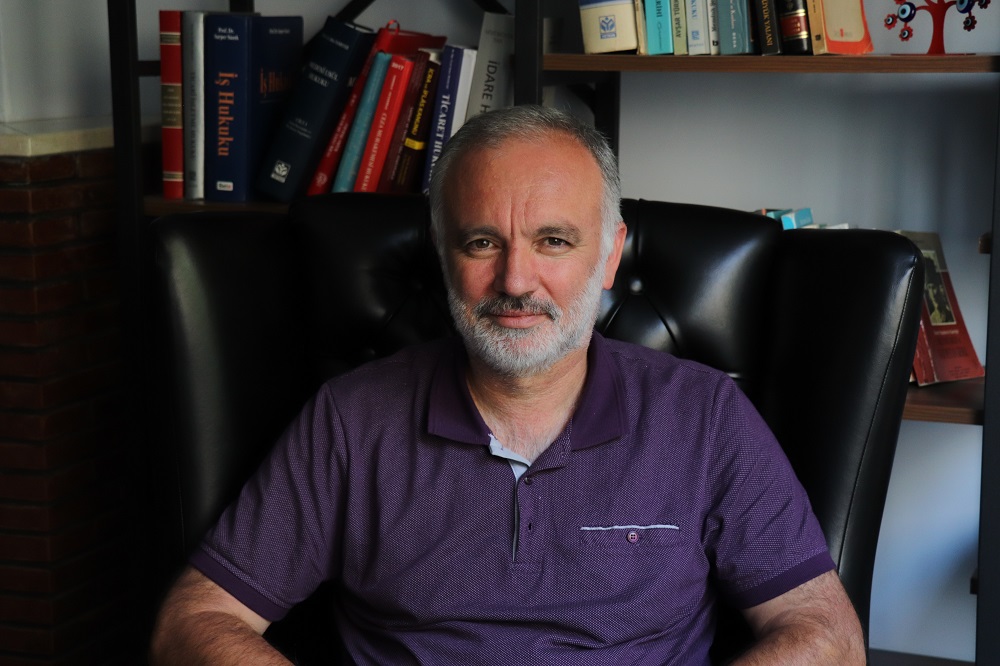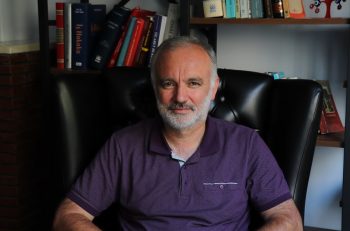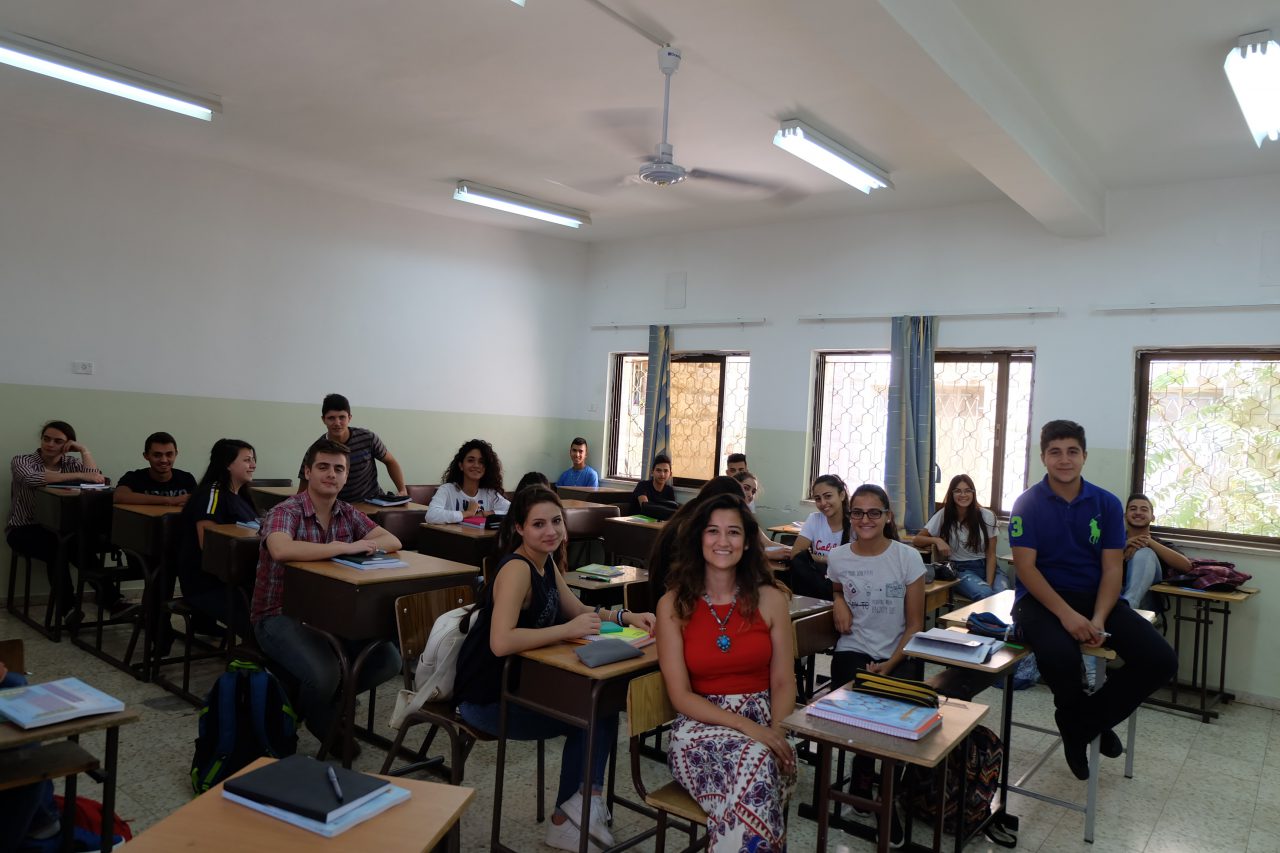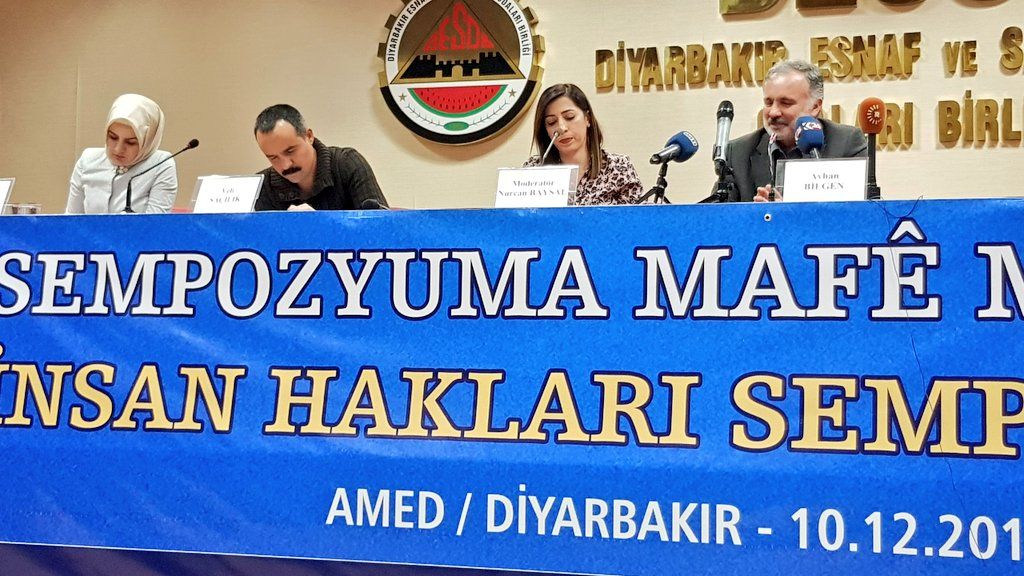‘We Should Build up a New Encompassing Language Besides Political Style Repetitions and Political Habits.’

We’ve talked with Ayhan Bilgen, the ex-mayor of Kars Municipality who was released recently, about the closure cases brought against Kobani, HDP, about civil society - politics relations, and the concepts of 'alternative politics' and 'direct democracy', which have been used frequently in recent days. Defending that a new political language should be built up that would put the old aggressive discourses, polarizations and marginalization away, Bilgen said, "We must develop a new language that is encompassing besides political style repetitions and political habits."
As someone who has been in civil society and politics for many years, how do you compare the past and the present in terms of civil society-politics relations and the extent of the civil sphere?
It is a very difficult matter of debate from a theoretical point of view, but if we analyze it over daily needs, there are those who approach civil society with a depoliticized perception. There are those who perceive it as a more apolitical field. Therefore, some characterizations are made as de-politicization or staying away from politics, trying to solve problems by staying out of politics. I actually have an opposite point of view. After all, human is human and nature is the same nature, states are the same states, so those who threaten civil society or the problems that narrow the field of civil society are almost the same as those of politics. Of course, two of them have different styles, they have different individualities in their own ways but there is an interaction, there is intertwinedness. I attach great importance to bringing the perspective of civil society to politics. I think that politics should strengthen and support the decision-making processes not only with politicians, but especially with civil society and by social struggles. When the relationship in this field could be brought to a healthy ground, both the quality of politics will increase, it will acquire a political quality, and I think that civil society will be a determinant in political decision-making processes.
What would you like to say about the closure case against HDP?
I think it has three dimensions. The first is the technical and legal dimension which is perhaps the least discussed or the least to be discussed. The second is the political dimension, such as political concerns, evaluations about political priorities like mostly political calculations such as who will come out better off and whose votes will increase etc. I am of the opinion that this is undoubtedly more decisive than the legal dimension. What I care most about is the third dimension, that is, the dimension of society and social psychology.
If people care about democratic means of struggle, attribute a value to them or have expectations about them, what kind of an impact such initiatives or calculations and plans have on social psychology, I think it is necessary to pay attention to this. What would party closure mean for the masses who care about the democratic political channel? Of course, looking through the eyes of the state and political parties is important in terms of understanding what’s going on, but more importantly, if the subject of politics is society, it is necessary to look at how society will read it. What pessimism, despair and disappointment will those people experience? In particular, it is extremely important that HDP tries to turn this process into an opportunity, with the awareness and consciousness that society is the subject of politics, by confronting its own realities, rather than a withdrawal or a reactive defense reflex.
How do you evaluate the Kobani events, from the days of the protests to the trial process in which you were included?
Both sides should have made an intense effort to shed light on the incident. The government claims that it has undergone very long investigation processes and review processes in its own way, at least we were told so. There are thousands of pages that have revealed, hundreds of folders have been put in the file as additional evidence, there are thousands of complainants. When you look at it formally, there is a very heavy accusation and there are just as many ‘maybe there are reasons to be associated’. What did the opposition do in the parliament during this time, what did the civil society do? For example, why hasn’t an investigation and research commission been established until now? Is this something to be overlooked?
In the past, there had been events such as the Maraş events, the events in Çorum, the events of September 6-7 which were hate crimes, social conflicts that included lynching, and even provocative attempts towards the civil war. I think the way for these things not to happen again is important both for the participants in the demonstrations, for the politicians, and for the security guards who intervened in the events. Political parties could establish a more active mechanism such as investigating incidents, reaching victims, etc. Confronting these processes and ensuring that these processes are illuminated are extremely decisive in terms of establishing a future for societies.
It is also thought that the case was created with political motives rather than a confrontation-justice effort, like being brought up years later, etc., what do you think about it?
After all, a historical confrontation is needed, that’s for sure. As a result, even the claim that more than 50 people lost their lives in some cases, and 37 people in the last case, requires a confrontation itself. Undoubtedly, the confrontation in the social conscience is important, and will be valuable and decisive for the future of societies, rather than the trial in court corridors.
As a result, the death of dozens of people of course requires responsibility, judgment and punishment. But how you do this is one of the most basic principles of law. In other words, it is necessary to act out of the act, not from the perpetrator. If you act out of the act, the causes of death, autopsy reports, ballistics examinations, weapons, instigators, provocateurs, etc. anything can be investigated. But if you act over the perpetrator, if you set out as they are guilty or as they killed them, it will turn into the methods of trial in medieval Europe. You have already decided to punish them and you are trying to relate in your own way.
Discussion of the criticisms you made within the party before your arrest, is still ongoing, do you think you are understood?
If I’m not understood, it means I have an expression problem as well. I am neither eager nor willing to hide behind the mystery of obscurity, nor am I in a position to blame the people I am trying to convey the message to. After all, if I am the one who sends the message, I have to act with the responsibility of it and be attentive to be understood correctly, but at the same time, of course, I have to stand behind the fact that it serves the desired purpose. I did not do such a thing out of anger, with a reaction, or with a personal interest.
Before I was arrested, I shared my concerns with the responsible people and with the public in interviews and conversations that I gave from time to time through open means. I think that the subject of politics is society, therefore, if I consider representative democracy sufficient, I would undoubtedly do politics only through representative offices. However, we politicians, committees, mechanisms only have a facilitating role, otherwise the people living in the country have the say. In other words, it is more important how those who set their hearts on HDP, the society, the mass, the public, and therefore how they understand it.
After all, I do not claim that no one else sees the truth, and that everyone should see my truth. As a requirement of my own conscientious responsibility, I share my warnings about what I see as right and necessary. I share my ideas beyond criticism, it is both the party administration and the society that will appreciate and evaluate it. If there are things that I said wrongly or incompletely, or if I said maybe little offensive things, I am open to all kinds of criticism and evaluation about them, of course, but it is a fact that there is a blockage in Turkish politics.
Not only from HDP’s point of view, but from whichever party’s window you look at it, nobody says that there is no such blockage in politics, neither the government nor the opposition can say that the security is intact. If there is a mass of problems and politics has a capacity problem in solving them, it means that we have a responsibility to make other openings in politics and to produce other discourses.
What exactly is the democratic and pluralistic system you are talking about and why is it getting backlash?
If you have a hegemonic point of view in politics, if you are doing politics by thinking you will be the savior and that you claim what is best, you begin to see differences as threats and read criticism as enmity and betrayal. I say it in terms of the definition of the political culture and the dominant understanding in Turkey, however, when we compare it to a sports competition, on the contrary, if you are playing football, you need at least twenty-two people, you cannot compete with only eleven people. The more important the power is here, the more valuable the opposition is, otherwise there will be no competition.
It is a serious handicap for everyone to see themselves as valuable, to care about themselves, and to not tolerate even a role regarding the other. However, strong governments emerge with strong oppositions. Governments also need an opposition that contributes to the decision-making processes with a constructive criticism. You can read this in the form of power throughout the country or in the form of intra-party power.
If we do not reach the maturity and level of seeing diversity as pluralism and richness, if we cannot carry this style to politics and make it dominant in politics, we may reinforce the area under our control and our dominance there, but unfortunately we will always be incomplete, we will always be alone with our inadequacy.
What do these concepts that you frequently use such as alternative politics and direct democracy indicate? What perspective do you have for a solution to the political crisis Turkey is in?
Direct democracy is treated as nostalgia in Turkey, as something a bit romantic and anarchist. At least, the references are made as follows: In the city-states of ancient Greece there may have been direct democracy in the decision-making process consisting of a small population and a city, but now there are nation states, there are millions of people, and thus there cannot be direct democracy here. I don’t look at it that way. Of course, you may not be able to take greater decisions quickly and easily with direct democracy mechanisms. But on the contrary, there is a facilitating example: the means of communication from Ancient Greece to the present… An example that I give very often is when withdrawing money from the ATM, it asks you if you want to buy a house or if you want to get a loan. Now, in a world where it is so easy to ask questions and get answers, if you are really looking for answers to the questions of what the public says or what the society wants, you can well seek their opinions.
If you now turn democracy into such an art of illusion, an art of deceiving the society, then the cost will be extremely heavy. Direct democracy mechanisms should be implemented both locally and perhaps on a common ground or on common platforms as much as possible. This can be a neighborhood initiative, can be at a district level as well as a provincial level, or it can be through mechanisms that are not transferred from election to election, or by very practical methods.
What we mean by alternative politics here of course is not something that is very limited and outlined. Alternative politics is a quest. Can we develop a new language that transcends the old polarizing and marginalizing language as a political method, a political language, as a more encompassing, more comprehensive language that puts the old aggressive discourses away in the face of new perceptions and new pursuits of the new generations in a world that has really changed within these political habits and political style repetitions in Turkey? A democratic alternative, and a language that is more empathetic, more appealing to the other, that does not exclude, does not discriminate, or is not confined to a single identity?
This is a quest, therefore a journey, that’s how it should be described. Those who are interested in this will fill it in together. We will see how much political parties will be affected by this, how much they will benefit from it, how much they will implement it, or how much politicians will care about it in this journey.
How can the political space expand and what role can civil society undertake in this regard?
Politics is too serious to be left only to those who take politics as a profession. Even describing the political sphere as only a field of political parties is constricting in my opinion. Political sphere is a part of the social life and whatever affects that social life, an organized or civic or humanitarian reaction that is put forward with responsibility, with whatever call or initiative, I think all of them should be able to affect the political sphere. Politics should also facilitate them to influence the decision-making processes, that is to mediate. The famous saying of representative democracy “for the people in the name of the people” should be left far behind. What should be kept is the style. The more the political field gets rid of mandate, of oppression and imposition, the more social it becomes, or, to put it vice versa, the more the society participates in politics, the more it is conveyed to politics, the stronger the politics would become in terms of its capacity to solve social problems.
Otherwise, it will be condemned to something like this, only politicians would have the right to have a say about politics, and discourses such as civil society should deal with their own business would emerge. Then it means that you have made politics a profession. So you’re looking at it like this, the surgeon does the surgery, the barber does the shaving, then the politicians take the political decisions about the country. I think the politician has no right to usurp such power. Yes, they would carry more burden, more responsibility, maybe would spend more time, would sacrifice more but in the end, they know that the real owner of all those is the people, the society.
How do you see Turkey’s near future in terms of both politics and social problems? What kind of effort should institutions, especially political parties make for the construction of a democratic society?
When you look at the economy, you can analyze how much of our problems are caused by our internal dynamics or how many are global-scale or external problems. It is possible to make many analysis about it, but no matter what, whether there are global problems or problems arising from our internal dynamics, it is necessary to get rid of the syndrome of waiting for a savior in order to solve them and to seek solutions for them. Societies build their own liberations and shape it with the common minds they establish and the common conscience they develop. Otherwise, if societies delegate this task to politicians, surrender to a state of waiting for a leader, waiting for a savior, or surrender to a passive state, I think this meltdown will probably take a long time and probably the roadmap will not be drawn well. When the parties fanatize and polarize the society, it would cause a very serious damage, a damage in terms of differentiating the social space, and it also has a dimension that prevents transition, makes transformation and change difficult and turns existing patterns into status quo.
If politics is built on a sense of trust, the pursuit of hope and of alternatives would emerge, and humanity must be in a constant pursuit in this sense. There is not a ready-made remedy on who will save us no matter what century or geography the savior would come from, it won’t be enough. Because life goes on, while life and social problems are dynamic, you cannot offer dogmatic remedies, you cannot promise salvation to the society with ready-made remedies. In this sense, the solution is something to be sought together, that is, the prescription must be written together. Maybe we should approach politics with this style. In this sense, the politician has to be more modest, more open to learning in one dimension, but also must perhaps be more assertive in terms of avoiding self-sacrifice, dedication, corruption and in terms of staying away from careerism.






Bizi Takip Edin